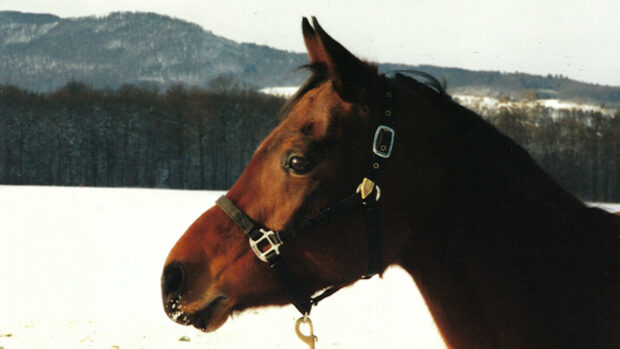The risk of equine herpes virus (EHV-1) in the UK is nearing “normal levels” following the European outbreak.
On 18 March British Equestrian (BEF) announced that the risk to the UK had “mildly increased” since the outbreak in Valencia, which started on 20 February. In a statement today (7 April) the organisation said following the successful implementation of protocols for horses returning to this country from Europe, the risk to the UK had dropped.
“BEF’s Equine Infectious Diseases Action Group (EIDAG) has considered data on the prevalence of EHV-1 diagnosis in UK over the last three years and concluded that while EHV-1 remains a persistent and ever-present threat, the mildly increased disease risk level announced is now dropping towards the baseline number of cases seen in any other year,” said a BEF spokesman.
“The process of monitoring and laboratory testing, which was imposed on horses that had been in direct contact with EHV-1 outbreaks at competitions in the Iberian peninsula and subsequently across Europe, is going extremely well.”
Under BEF protocols horses that had competed in Europe were automatically suspended from competition on their return to the UK and it was strongly advised that they were isolated from other horses. In order to return competition, horses must have completed 28 days’ quarantine, with all horses on the premises free of clinical signs of EHV during that time, or laboratory testing.
“While some of the horses currently suspended from competition are still to complete the protocols that will enable them to compete in the UK, all horses that have completed the laboratory testing option have thus far shown no active infection,” said the spokesman.
“Currently, there is no change to the EIDAG’s recommendation that these testing protocols must be completed in full before these horses return to competition.”
The EIDAG is also recommending the use of the health self-certification forms for competition remains in place for the “foreseeable future” to help manage the risk.
“The group anticipates that by 12 April it may be possible to remove the current restriction that to attend UK horse gatherings, horses must have been resident in this country for the last 28 days,” said the BEF spokesman. “A new template will be circulated to BEF member bodies to remove this restriction after 12 April, providing the current disease risk level continues to fall.”
Continued below…

Riders should apply Covid principles at shows to also protect against spread of EHV
“We’ve all learned the importance of protecting each other during the pandemic – now we need to apply the same

EHV: safety measures in place as competition due to restart *H&H Plus*

Subscribe to Horse & Hound magazine today – and enjoy unlimited website access all year round
BEF chief executive Jim Eyre said the EIDAG update was “welcome news”.
“We know EHV is endemic in this country but the threat posed by the European outbreak was a cause for great concern. I’d like to thank the member bodies and all their riders, owners and grooms, who embraced and followed the protocols so readily and with such commitment,” he said.
“We’re also grateful to the members of the EIDAG; Celia Marr and her team have been a huge support and played an instrumental part in mitigating any risk of the spread of EHV and keeping our collective equine population safe.”
Horse & Hound magazine, out every Thursday, is packed with all the latest news and reports, as well as interviews, specials, nostalgia, vet and training advice. Find how you can enjoy the magazine delivered to your door every week, plus options to upgrade to access our H&H Plus online service which brings you breaking news as it happens as well as other benefits.





